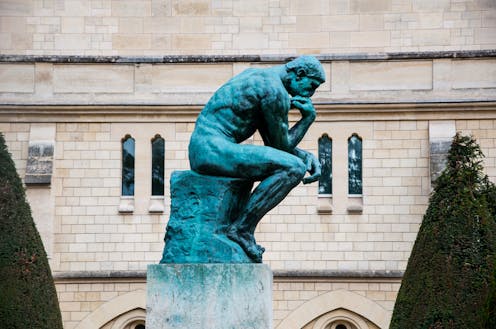A philosopher makes the case for a thoughtful life – but life is more than a thought experiment
- Written by Oscar Davis, Assistant Professor in Philosophy and History, Bond University

Svend Brinkmann’s Think[1] is a book in praise of the thoughtful life and an easygoing exploration of the role of thinking in our lives today.
The book is essentially in two parts. The first is descriptive. It explores questions like “what do we mean by thinking?”, “why has it become difficult to think in today’s world?” and “where does thinking come from?”
The second part is prescriptive. Brinkmann provides some quick and relatively simple strategies for bringing more thoughtfulness into our everyday lives.
Think: In Defence of a Thoughtful Life – Svend Brinkmann (Polity)
The reader is introduced to a variety of important and complicated philosophical questions. Brinkmann introduces, for example, the Ancient Greek philosopher Socrates and refers to a challenge that Plato’s brother, Glaucon, raises in The Republic[2].
Glaucon asks Socrates to imagine that the existence of a ring capable of making one invisible whenever the wearer desired. Anyone with such a power, Glaucon argues, would steal and murder and “in all respects be like a god among men”.
















